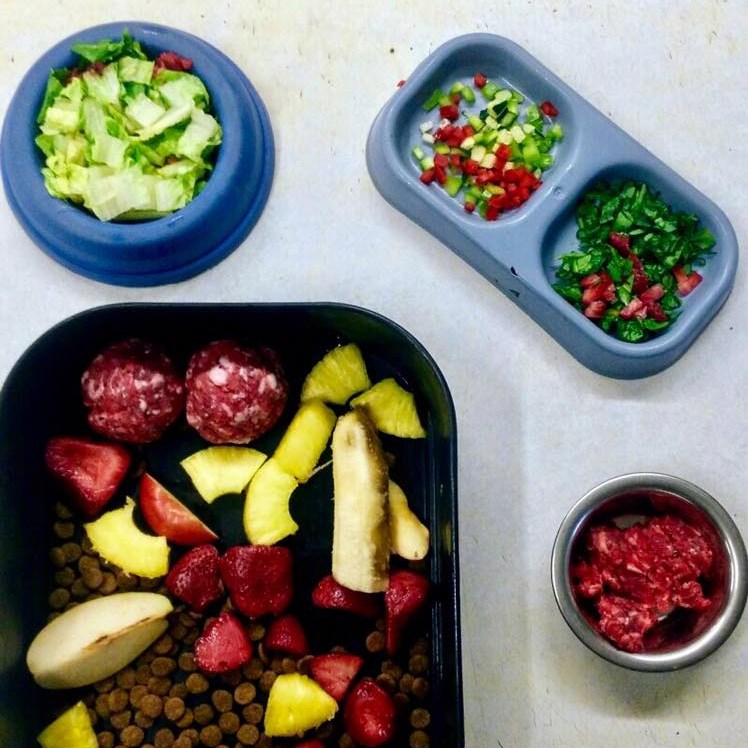- Volunteering at Dakota Zoo: Opportunities and Contributions
- The Importance of Supporting Wildlife Conservation
- Scientific Aspects of Animal Diet Preparation
- The Benefits of Volunteer Programs for Individuals and Institutions
- Applying to Volunteer and Making an Impact at Dakota Zoo
Volunteering at Dakota Zoo: Opportunities and Contributions
Volunteering is a significant way in which individuals can make a difference in their community and environment. At Dakota Zoo, volunteering plays a crucial role in supporting the day-to-day operations and conservation efforts. The current call for volunteers emphasizes the need for assistance in animal diet preparation, which is a vital component in the care and management of zoo animals. The opportunity provides a hands-on experience in understanding animal nutrition, fostering a deeper appreciation for the complexities of wildlife care.
Volunteers can choose from various areas, including exotics, carnivores, and hoofstock. Each area presents its unique set of responsibilities and learning opportunities. For instance, volunteers working with exotics prepare produce diets, gaining insights into the diverse nutritional requirements of animals such as reptiles and primates. Those interested in carnivores will handle meat diets, learning about the intricate balance of nutrients these predators need to thrive. Lastly, hoofstock volunteers focus on grain diets and bird salads, understanding the plant-based dietary needs of animals like giraffes and ostriches. These roles not only support the zoo’s operations but also enrich volunteers’ understanding of biodiversity and species-specific care.
The Importance of Supporting Wildlife Conservation
Wildlife conservation is increasingly pertinent, not only for maintaining biodiversity but also for ensuring ecosystems’ resilience against environmental changes. Zoos like Dakota Zoo serve as arks for endangered species and educational hubs for the public. By volunteering, individuals contribute to these conservation efforts, facilitating breeding programs, habitat restoration, and public education campaigns. Furthermore, zoos play an essential role in research that can lead to breakthroughs in conservation science and practice.
Volunteers are instrumental in these efforts, often working under the guidance of experienced zoologists and conservationists. Through their involvement, they gain firsthand experience in the challenges and successes of wildlife conservation. This collaboration is foundational for creating sustainable practices that protect our planet’s diverse species. Moreover, public engagement, facilitated by volunteer programs, is critical for fostering widespread support for conservation initiatives.
Scientific Aspects of Animal Diet Preparation
The preparation of animal diets at a zoo is more than a simple task; it requires an understanding of animal physiology and ecology. Each species has evolved to thrive on particular diets, and replicating these diets in captivity is a precise science. Volunteers at Dakota Zoo learn to balance nutrients, understand dietary enrichment, and incorporate these factors into the diets they prepare.
For instance, carnivores require high-protein diets, and ensuring the quality and balance of meats provided is crucial. Conversely, herbivorous animals such as hoofstock need fibrous diets composed of varied grains and greens. Exotics, which may have specialized feeding requirements, often need diets loaded with a wide range of fruits and vegetables. Preparing these diets fosters an appreciation for the diet’s impact on animal health and behavior.
In addition to nutritional content, diet prep involves ensuring food safety and hygiene standards, mimicking natural eating behaviors through enrichment techniques, and considering any individual dietary needs or restrictions. Volunteers become part of a dedicated team, learning and applying scientific knowledge that directly contributes to the well-being of animals in their care.
The Benefits of Volunteer Programs for Individuals and Institutions
Volunteer programs are mutually beneficial for both participants and the hosting organization. For individuals, volunteering at a zoo offers a chance to expand their knowledge, acquire new skills, and form connections with people who share similar interests. It often serves as a stepping stone for aspiring professionals in zoology, biology, or conservation fields, providing practical experience that complements academic learning.
From the institution’s perspective, volunteer support is invaluable. The additional hands allow staff to optimize their time and focus on specialized tasks such as research, conservation strategy development, and educational outreach. Volunteers’ fresh perspectives, enthusiasm, and dedication contribute to a vibrant and productive atmosphere, enhancing the institution’s capability to achieve its objectives.
The Dakota Zoo benefits significantly from volunteer involvement. Volunteers help maintain high standards of care and animal welfare, supporting the zoo’s mission to inspire a love for nature and promote conservation education. This collaboration strengthens the community’s ecological awareness, creating advocates for wildlife conservation.
Applying to Volunteer and Making an Impact at Dakota Zoo
To join the team and make a meaningful impact, potential volunteers should apply through the Dakota Zoo website or contact their education department directly. The application process is a straightforward way to express your interest and availability while aligning your skills with current needs. Volunteers are required to commit to at least 2-3 hours weekly, a manageable time investment that yields significant rewards for both the volunteer and the zoo.
The volunteer experience at Dakota Zoo is both rewarding and educational, providing a comprehensive glimpse into zoo operations and wildlife care. By giving your time to prepare animal diets, you contribute to the overarching goal of preserving biodiversity and fostering a deep understanding of animal conservation.
Whether your interest lies in creating nutritional plans for exotic animals, preparing meals for carnivores, or assembling grain diets for hoofstock, your participation is a vital component of national and global conservation efforts. Engage in this opportunity, join a dedicated team, and become an integral part of the mission to protect and celebrate our world’s incredible biodiversity.
*****
Source Description
WE NEED YOU! If you are interested in donating some time and support, we have openings for volunteers in animal diet prep! Volunteers are needed for a minimum of 2-3 hours weekly between the hours of 9:00am-3:00pm. Diet prep areas and days needed are:
*Exotics (produce diets): Wed, Thurs, Sat
*Carnivore (meat diets): Mon, Sat
*Hoofstock (grain diets/bird salads) Wed, Fri, Sat, Sun
To apply fill out the application found at https://www.dakotazoo.org/volunteers/volunteer-opportunities/ or email educate@dakotazoo.org


